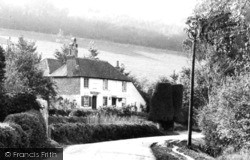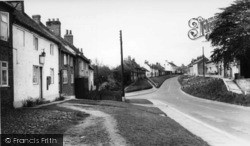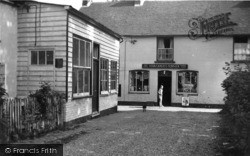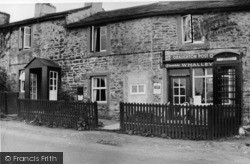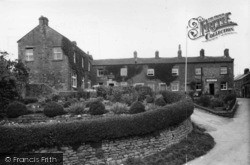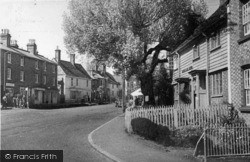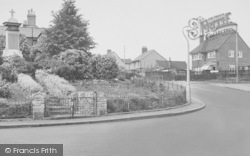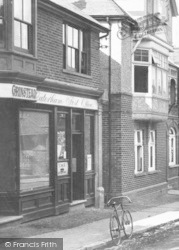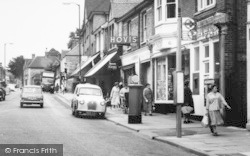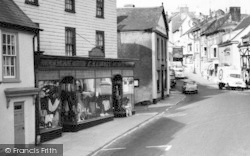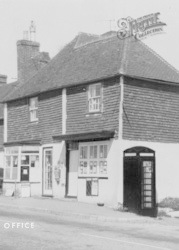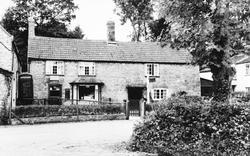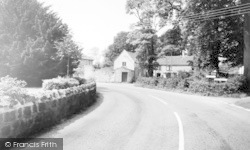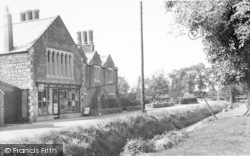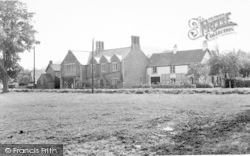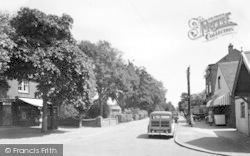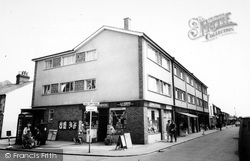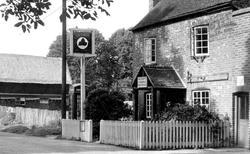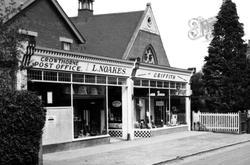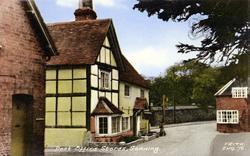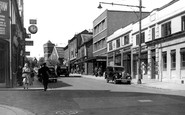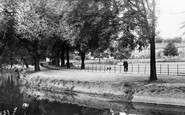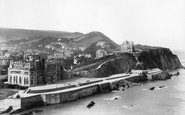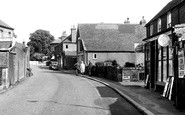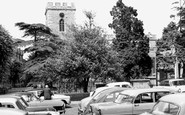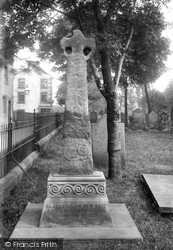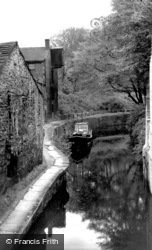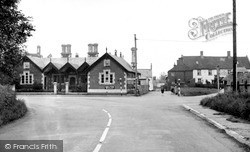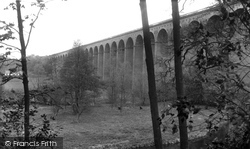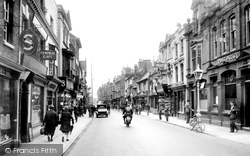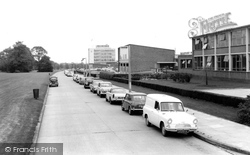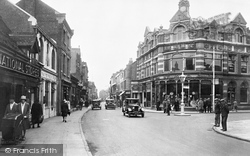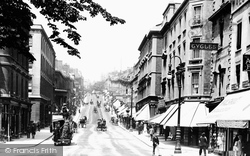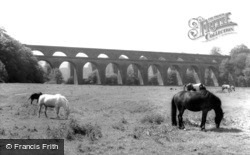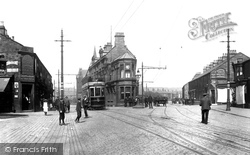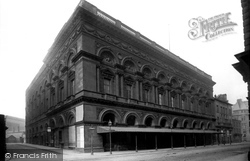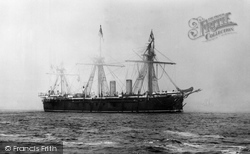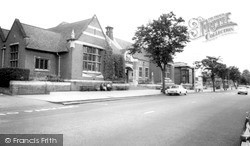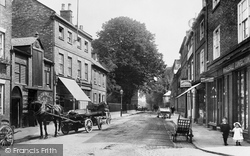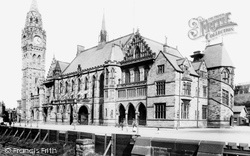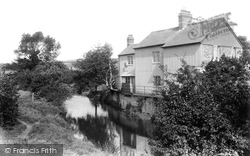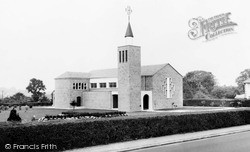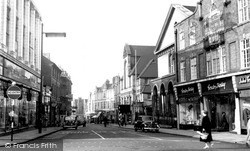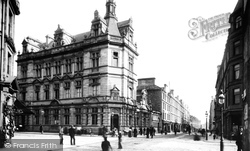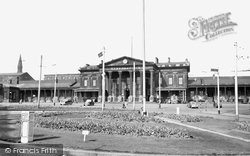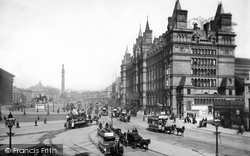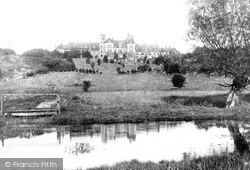Places
9 places found.
Those places high-lighted have photos. All locations may have maps, books and memories.
Photos
2,748 photos found. Showing results 1,301 to 1,320.
Maps
776 maps found.
Books
1 books found. Showing results 1,561 to 1.
Memories
2,736 memories found. Showing results 651 to 660.
Near Dunstable Place
This picture looks like it was taken with Dunstable Place as the intersection on the left. It would have had the Post office on the corner closest to the photographer and housed the old police station on the right between Upper George St. and Stuart St.
A memory of Luton by
Sunday Football
Although l tended to spend most of my free days playing at near by Hilly Fields, it being nearer to my home, l do have a few memories of playing at the Wreak, that's the name, we as kids knew it by. As a pupil at Lewisham Bridge ...Read more
A memory of Lewisham by
Park Court ~ Balham Park Road
My Aunt & Uncle (Ella & Cecil Forbes) lived in a two bedroom flat in Park Court in Balham Park Road from 1948 & throughout the 1950s and I spent much time staying with them as my parents ran pubs in The City. ...Read more
A memory of Balham in 1955
Caravan Holidays In Swanage
I have been holidaying in Swanage for 46 years, staying on Ullwell caravan site then Phippards. Happy days walking down to the tap for water, the water use to trickle out of the tap but did not bother us what so ever. ...Read more
A memory of Swanage by
Radlett Prep
I attended Radlett Prep between 1958 and 1965. It was located in a converted three floored Edwardian house on the corner of Hillside Avenue and Aldenham Grove, and has since been converted back to a private residence. Aldenham Grove ...Read more
A memory of Radlett by
Why Did They Knock It Down
I remember the last days of the Ilfracombe Hotel. It was a beautiful building but after years of neglect and then under council ownership it fell into disrepair (plus a certain hotelier/councillor didn't like it as it ...Read more
A memory of Ilfracombe
Childhood
I was born at Peartree Cottage which was half way down the high street. For a young boy growing up the war was one big adventure. The fire station was opposite our house and they made me some really great wooden toys. As ...Read more
A memory of Minster in 1930 by
Happy Memories
I joined the WRAC and was posted to JSSC in the beautiful village of Latimer in 1953, what a wonderful time that was. There were two of us arriving at JSSC on that April day and the first place we went to was the NAAFI. Up on the ...Read more
A memory of Latimer in 1953 by
St Andrews Parish Church
I was christened in the parish church around 1955/56. They used to send you a postcard every year until you were 5 years old to remind you of the event - unfortunately having moved several times during my life I no longer ...Read more
A memory of Enfield by
Long Lost Relatives
I remember going to school in the village. My family were all from the village and worked for JCB, maybe someone knows my family, the Tompkinsons. It would be nice to heare from someone who knows them or relatives, as I have not been back for 20 years.
A memory of Stramshall in 1957 by
Captions
1,653 captions found. Showing results 1,561 to 1,584.
Burtons and Woolworths altered the streetscape with their respective Art-Deco and stuccoed cost-cutting neo-Georgian designs.
Not only did the coming of the canal vastly lower distribution costs for the industrial towns of Yorkshire, it also provided a localised transport service for the towns and cities through which it passed
Not only did the coming of the canal vastly lower distribution costs for the industrial towns of Yorkshire, it also provided a localised transport service for the towns and cities through which it passed
The will of Henry Forster dated 26 August 1692 directed that a school master at £10 per year be appointed at five Rutland villages, including Langham, to educate poor children free of cost
Opened on Monday 6 August 1850, the 40 semi-circular arches are built from sixteen million locally made bricks capped with Hexham stone blocks; the cost was £80,000.
Cheese, which had cost 8d a pound in 1914, had risen to 1s 2d by 1920.
It closed in 1984, costing Basildon 1,500 jobs. Fifteen years earlier, it had been producing 65% of all the cigarettes exported from Britain.
Cheese, which had cost 8d a pound in 1914, had risen to 1s 2d by 1920.
Cheese, which had cost 8d a pound in 1914, had risen to 1s 2d by 1920.
An early experiment using water-carts to damp down the streets found that it took 7,000 gallons to water one mile of street, 18 feet in width, at a cost of 8s 4d per mile.
Built between 1796 and 1801 at a cost of £20,898, the aqueduct carries the canal 70 feet above the River Ceiriog for a distance of 710 feet.
It belongs to St Andrew's church, which dates from 1867 and cost £5,000. St Andrews School, opened in 1866, is directly behind the Duke of York.
When the subscription list opened for the cost of the building, it was referred to as the City Hall.
Designed in 1865 and built at Chatham, she was completed in 1868 at a cost of £361,134 including machinery.
The low brick building, with Ketton stone facings, cost £8,000.
The function of a chantry priest was to say a mass every day for the soul of some departed citizen, the costs having been provided for in the dead person's estate, often in the form of rents from property
Plans were requested for a Town Hall costing about £20,000, but by its opening on 27 September 1871 the bill was £160,000. W H Crossland designed the 88ft-long building.
Its bell tower housed a carillon of 35 bells, cast at Louvain, and installed at a cost of more than £2,000. People would gather on the surrounding hills to listen to its peal.
In 1960 a new church, designed by Felix Velerde, was built at a cost of £40,000 and dedicated to St Vincent de Paul and St Louis de Marillac.
Clothes were still made at home, and Thoday sold patterns, often by Vogue, which could cost as much as 7s 6d, and also the more humble and easier designs selling for 1s 9d.
Blair was the postmaster-general, and in the letter he details the establishment of a postal service in the city.
The station was built at a cost of £20,000, and its classic grandeur still dominates St George Square. The foundation stone, laid in 1845, weighed an incredible six tons.
The corporation thought that this area was so important that they paid towards the cost of the Storeton stone from the Wirral for this French Renaissance-style building.
The neat and commodious building was erected in 10 acres of land at a cost of £1,000, and received several endowments.
Places (9)
Photos (2748)
Memories (2736)
Books (1)
Maps (776)


